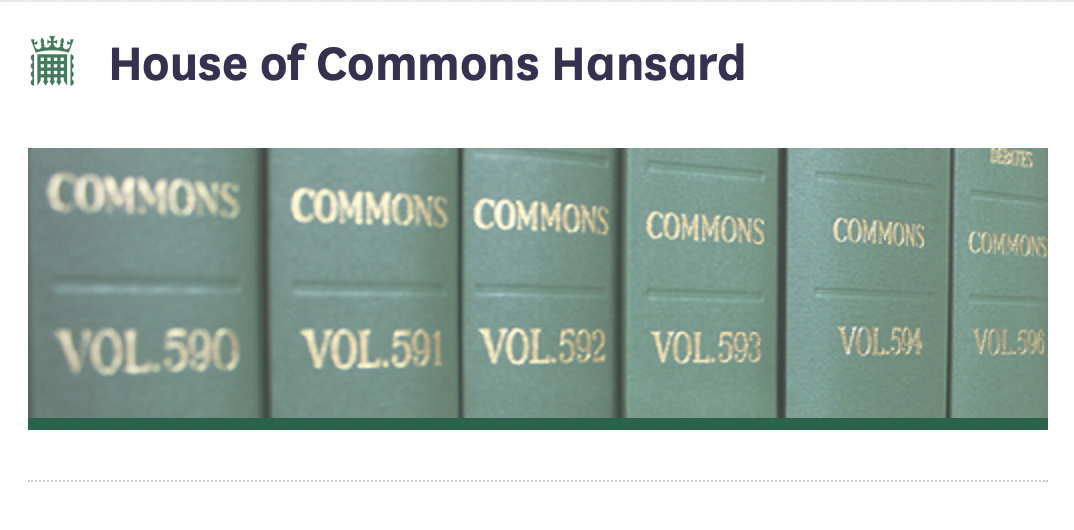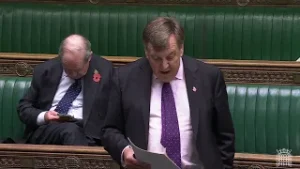John Whittingdale Conservative, Maldon
I am delighted to welcome the Bill’s Second Reading. As has been pointed out, this is a Bill we have welcomed in the past; indeed, I chaired the Select Committee that considered the draft Bill in 2008, when we subjected it to pre-legislative scrutiny. At the time, we very much welcomed the Government’s intention to introduce it. We pointed out that then it was 55 years since the adoption of The Hague convention and that 118 countries had already signed the convention. Another eight years have passed since then, and I am proud that the Bill should finally go on to the statute book under a Conservative Government in their second Session in office.
When we took evidence, it was pointed out to us that there had been some examples of damage to heritage assets during the course of the Iraq war, particularly some in the city of Babel, that may have been caused by coalition forces. Although that was obviously not deliberate, it highlighted the importance of stressing the need to protect cultural assets.
Chris Bryant Chris Bryant Labour, Rhondda
I have a specific question on cluster munitions. The right hon. Gentleman just used the words “not deliberate” in reference to the fact that often some cultural objects are destroyed in war. Cluster munitions can be so indiscriminate and they spread across a wide area, and so their use is one reason why cultural objects are often destroyed. Is it not incumbent on us now as a country, having given up cluster munitions ourselves, to try to persuade all our allies to do the same?
John Whittingdale Conservative, Maldon
I sympathise with the hon. Gentleman’s point. All signatories to the convention should certainly do their utmost to prevent damage to cultural assets and assets that have been identified as culturally important. I would therefore expect our allies who are signatories to adopt that approach as much as we do.
As has already been raised, however, there is a huge gulf between what may have happened as a result of actions by forces in the Iraq war and what we have seen being carried out by Daesh in Syria in recent years, in Palmyra in particular but in other places as well. The first priority has to be the humanitarian crisis and preventing loss of life, but the destruction of cultural assets is hugely damaging. As has been said, they are part of the history and national identity of a people. They are also, potentially, part of their salvation, for when conflict comes to an end cultural assets can represent economic assets from which one can rebuild an economy by attracting people to visit.
Cultural assets are also part of the world’s heritage, and we all have a duty to do our utmost to safeguard that heritage. For that reason, I was delighted when the Government established the cultural protection fund, worth £30 million, and I pay tribute to my right hon. Friend Mr Osborne, Chancellor of the Exchequer when the fund was established, and the Education Secretary, who was then Secretary of State for International Development, for their part in agreeing to that, as a large part of the fund can be classified as international aid. I also pay tribute to Neil MacGregor—he has already been mentioned—who was the driving force for the establishment of the fund. He and I launched it together, and, as the director of the British Museum at the time, he took responsibility for the first phase, a £3 million fund administered by the British Museum to send archaeologists into Iraq to advise and help in restoration where damage had taken place.
I was also immensely privileged to meet Dr Maamoun Abdulkarim, who is director-general of antiquities in Syria. He was the boss of Khaled al-Asaad, whom Kevin Brennan mentioned. Dr Abdulkarim described the courage shown by his colleague, who did not wish to divulge where very valuable artefacts had been concealed and as a result was beheaded by Daesh.
The question of whether Daesh comes under the definition of occupying forces has already been raised. Even if it did, one has to admit that it seems unlikely that the passage of an Act will prevent it from carrying out such horrific atrocities. But it will send a very important signal. It will also have an effect on our own forces.
Thomas Tugendhat Conservative, Tonbridge and Malling
My right hon. Friend makes a good point. Although I appreciate his point that the Bill is unlikely to dissuade Daesh from its actions, it may affect its ability to support itself financially, because one of the ways in which it currently fills its coffers is by selling looted artefacts.
John Whittingdale Conservative, Maldon
My hon. Friend makes an extremely good point. Most of the attention has been on wilful destruction, but he is absolutely right that the trade provides finance to Daesh. We must do everything we can to stamp that out, which is why I support the principle that it should be unlawful to deal in illegally exported cultural property.
I pay tribute to the efforts already made by the Ministry of Defence and commanders in the field to abide by the terms of the convention, even when it was not ratified. When the Committee took evidence from the MOD, it said it would review and strengthen the commitment it had already given that training should take account of the absolute priority of abiding by the requirements of the convention.
The Committee heard concern about one aspect of the Bill: the offence of dealing in unlawfully exported cultural property. The first concern was about the definition of occupied territories. At the time, we were told that it was a very narrow definition, or that only a narrow group of countries or territories could be considered to be occupied. In 2008, the regulatory impact assessment identified the Golan heights, East Jerusalem and the west bank. Unfortunately since that time, the list of occupied countries has grown—I draw attention to Crimea. For the purposes of certainty for those dealing in cultural objects, it would help if we clarified exactly which territories we consider to be occupied.
The more serious concern related to clause 17, which makes it an offence
“to deal in unlawfully exported cultural property, knowing or having reason to suspect that it has been unlawfully exported.”
As has been pointed out by the legal advisers, there is a huge difference between “having reason to suspect” and “to suspect”, which is causing concern. If the definition of the offence covers “reason to suspect”, it gets into mens rea, as I understand lawyers call it. I will leave it to my right hon. and learned Friend Sir Edward Garnier to say more on that subject with considerably greater expertise.
The issue was flagged up for the Committee when we looked at the Bill eight years ago, which is why we suggested a clearer requirement of dishonesty. That is what currently applies in the Theft Act 1968, which carries a penalty of seven years, and in the Dealing in Cultural Objects (Offences) Act 2003, which also carries a penalty of seven years. The Bill introduces a penalty of seven years, and therefore it seems reasonable to ask that the same threshold should be required. I am delighted to hear from the Secretary of State that she is aware of that concern and will have further discussions.
Kevin Brennan Shadow Minister (Culture, Media and Sport) (Arts and Heritage)
The right hon. Gentleman makes an important point. Is he aware how many people have been convicted under the 2003 Act? My understanding is that the number is very low, and perhaps even zero.
John Whittingdale Conservative, Maldon
That point was made by my hon. Friend Tim Loughton earlier. The fact that there have been no convictions does not necessarily imply that the Act is not working—it is important to have it on the statute book. I do not believe that this country is full of dodgy art dealers who wilfully ignore the law and deal in plainly illegally exported objects.
Edward Garnier Conservative, Harborough
Nor should we go around lowering the threshold in order to scoop up innocent people.
John Whittingdale Conservative, Maldon
My right hon. and learned Friend makes a perfectly valid point and I agree with him. The art market is determined and supports the Bill. The last thing it wants is for this country to become a place where people can deal in unlawfully exported objects. It is worth bearing in mind that the market is hugely competitive and the third biggest in the world—it was worth something like £9 billion in sales in 2014. I would not like to see it inadvertently put at a disadvantage compared with other markets around the globe. I hope the Government bear that in mind. As I have said, I very much welcome their commitment.
Matthew Offord Conservative, Hendon
Will my right hon. Friend give way?
John Whittingdale Conservative, Maldon
If my hon. Friend will forgive me, I have finished my speech

